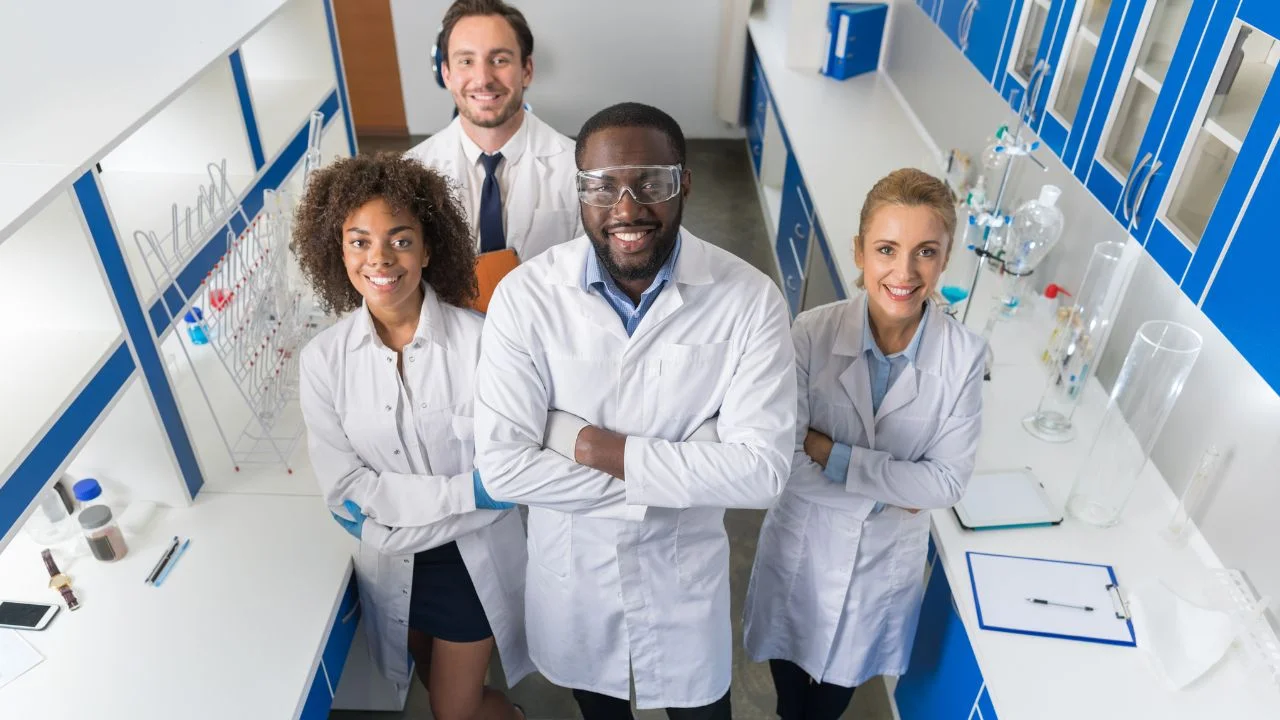How Is Technology Impacting The Quality Assurance Of Our Pharmaceuticals?
22 Apr, 20214:08The Life Science team at NES Fircroft recruit specialist personnel for Quality Assuranc...

The Life Science team at NES Fircroft recruit specialist personnel for Quality Assurance jobs across Europe. International governing laws dictate that medicines must be safe and effective and to achieve this, research, development, production and distribution processes must adhere to quality control. Industry bodies such as the Food and Drug Administration(FDA) and Good Manufacturing Practice (GMP) must be satisfied before a drug can enter the market. As such, Quality Assurance is a vital part of the pharmaceuticals industry – without it, a company is unable to manufacture products.
But what are the drivers of Quality Assurance improvements, and what role do ever-developing technologies play in the pharmaceutical industry?
The importance of Quality Assurance
History
Although today’s Pharmaceutical regulations and GMP requirements are thorough and strict, this was not always the case and the industry has had to learn and respond to tragic circumstances to prevent future tragedies.
For example, the 1906 Pure Food and Drug Act, requiring selected dangerous ingredients to be labelled on all drugs, was established after children who received an antitoxin for diphtheria died of tetanus. After investigation, it was realised that the serum used to prepare the antitoxin was contaminated.
Fast forward to the 1940s and regulations were updated again after many people were harmed and some killed by a company’s sulfathiazole tablets that were intended to be used as a sedative. This tragedy caused the FDA to put quality control requirements in place, which later became GMPs.
Lastly, the Thalidomide tragedy in the 1960s created tighter marketing rules. After expectant mothers were given the drug Thalidomide to help with sickness, their babies were born with serious deformities. The new regulations that arose following this stated the efficiency of a product must be proven before marketing. Because of this drug, it is estimated that over 10,000 children suffered from deformities.
Although many of these cases are now historic, the constant development of Quality Assurance is of extreme importance to protect consumers from the potential adverse effects associated with medicines.

The present
Now, Quality Assurance plays a vital role in ensuring products are consistently produced and controlled in accordance with the quality standards appropriate to their intended use. It also ensures companies are compliant when it comes to marketing and promoting their products to the general public.
Drugs must be sampled, tested and documentation must be produced detailing the results of the tests to ensure products are suitable for release. As technology advances, the Pharmaceutical industry can take advantage of new systems to improve Quality Assurance even further.
As well as this, the way drugs are produced is shifting, meaning Quality Assurance needs to shift with it. Historically, pharmaceutical manufacturing facilities could rely on developing the same product in large volumes. But in today’s market, more targeted therapies that need to be manufactured in smaller volumes are rising in popularity, meaning the industry is transitioning away from “one-line-one-product” setups towards multi-product manufacturing facilities.
Because multiple products are now being produced from the same manufacturing facility, sites must be designed with agility in mind so they can adapt to changing demands quickly. Facilities may need to re-orientate their processes meaning care needs to be taken to ensure processes for different drugs are thoroughly segregated to prevent cross-contamination. This shift in demand is driving the industry to introduce new technologies in order to adapt to the challenge.
Technology is making Pharmaceuticals even safer
Like many disciplines, the rapid advancements in technologies are driving change and the pharmaceutical industry is no different. Many different types of technologies are being implemented to improve the processes of pharmaceutical manufacturing and Quality Assurance which ultimately creates a safer market.

Single-Use Technologies
One increasingly popular technology in pharmaceuticals is Single-Use Systems. Unlike traditional production methods, these components are disposed of after use as opposed to cleaned or CIP’d (cleaned in place).
Adding Single-Use Systems to production can be advantageous because:
- They use less water and chemicals because little or no cleaning or cleaning validation is required.
- They use less energy, thus utility costs are reduced.
- They allow for more flexible manufacturing because less space is required.
- Productivity and efficiency are increased, reducing time-to-market for new products.
These advantages have led to many companies adopting this technology and as time goes on, the industry can expect to see even greater reliance on single-use technologies to keep up with fluctuating demand. As well as this, because no cleaning is required and each component is inherently sterile, manufacturers can switch quickly from one product to the next or from batch to batch without risking contamination – further improving safety.
Industry 4.0
Another technology improving manufacturing techniques and increasing compliance is Industry 4.0. This refers to new tools and technologies that are enabling manufacturing processes to become ‘smart’. With more ‘intelligent’ factories, integrated IT systems and the Internet of Things (IoT), quality and reliability is increased whilst waste is reduced.
Industry 4.0 means that people, processes, equipment and the supply chain are better connected, thanks to the introduction of edge devices, allowing manufacturers to have full visibility of operations - increasing quality. This technology, in essence, brings automation to a whole new level. For example, if during production the temperature of a batch becomes too high or too low, the equipment itself can detect this change and make adjustments rather than requiring the operator to manually intervene.
Advances in this technology could also mean that, in the future, machine learning algorithms will be able to automatically adjust manufacturing lines depending on demand as well as being able to identify when maintenance may need to take place prior to an issue arising – this real-time responsive decision-making is driving Quality Assurance improvements and is crucial to ensuring future operational efficiency for manufacturers.
The future of Quality Assurance in Pharmaceuticals
Quality Assurance is a critical element to pharmaceutical manufacturing because it ultimately protects consumers from harm. As we forge ahead into the future, Quality Assurance is set to improve further thanks to new technologies that increase cleanliness and automate processes that can spot errors, contamination and maintenance issues before they arise. This automation has the potential to truly transform pharmaceutical manufacturing processes, opening the door to essential improvements that can pave the way to an even safer future for consumers.

NES Fircroft and Pharmaceuticals
NES Fircroft has been supporting the pharmaceutical market for over 20 years, sourcing personnel for engineering, scientific and commercial roles across the market. If you have a staffing need our discipline specific consultants can support you by providing the experts you need to continue making great leads in drug innovation and production - contact us today to discover our staffing solutions.
Or, if you’re a scientist looking to grow your capabilities in the pharmaceutical industry, submit your CV today to take the next steps in your career or browse our pharmaceutical jobs.









